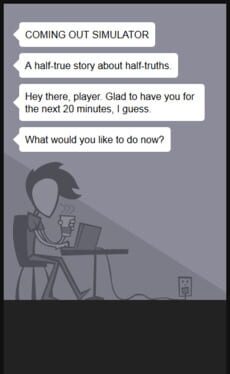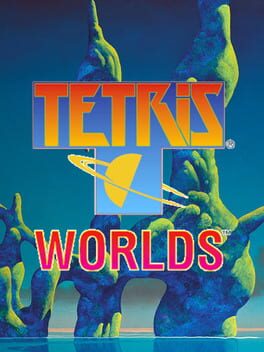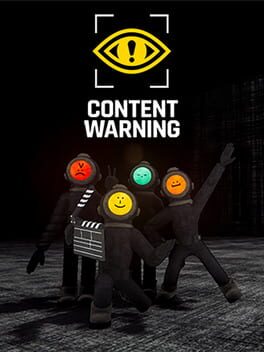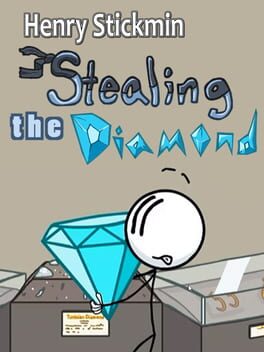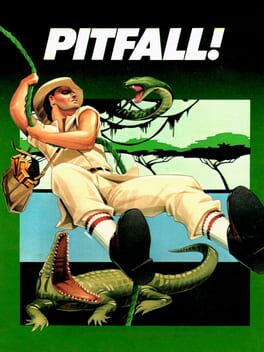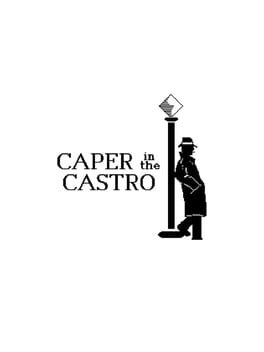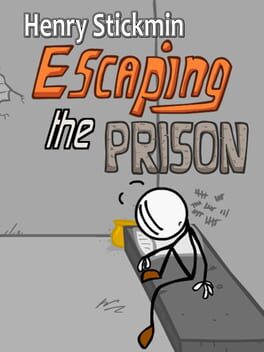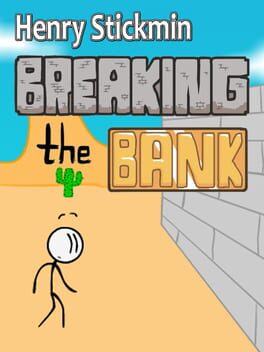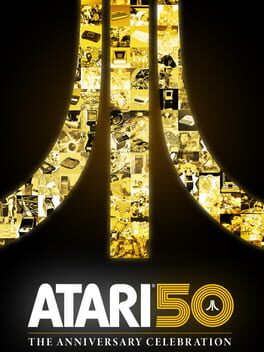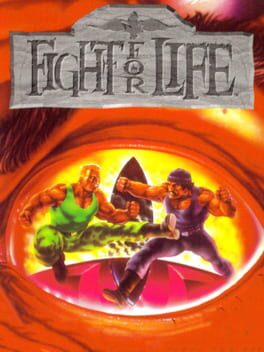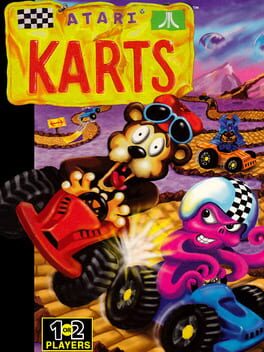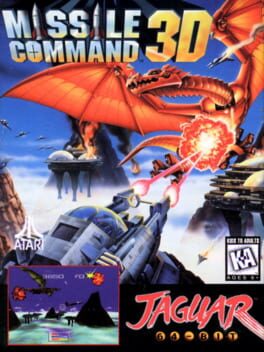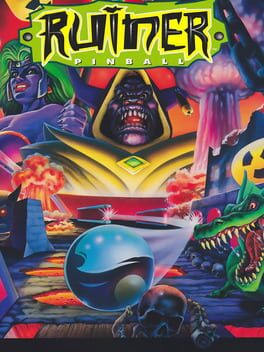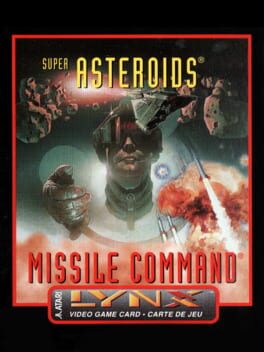tdstr
Really solid short queer game hindered by the simple but ever-present issue of the text flying by wayy too fast with no real way to slow it down. Feel like I woulda been able to appreciate it more if I didn't have to skim half of the dialogue to be able to read it in time. Still pretty solid though, although that's admittedly coming from the perspective of a gay man so it may be biased.
Consciously made the effort to only play it once, doesn't feel in the spirit of a "coming out simulator" to be able to do it again.
Consciously made the effort to only play it once, doesn't feel in the spirit of a "coming out simulator" to be able to do it again.
2001
Perfectly competent guideline Tetris game.
Although, the "story" mode (the main reason I played this) is a bit of a misnomer--so, you know how Tetris tends to have an endless mode and a marathon mode? Yeah, well, the story mode is just marathon mode. There's a opening cutscene that does some worldbuilding, some blurbs in the info menu, and a short little 3-5 second long animation when starting and ending a game, but that's about it, as far as a proper story goes.
Still, it's guideline Tetris, and guideline Tetris is good. Some of the modes are definitely better than others, Hot-line is interesting since you're incentivized to stack poorly and be good at recovering near the top, Fusion introduces single block pieces that can't be cleared away which makes clearing the board a fun challenge. They're not all hits though, Sticky doesn't ask you to play any differently than in normal Tetris (except you get cascades now), Cascade is fine (but I found chaining cascades much easier in Fusion), and Square isn't great since it fucks with the bag system and asks you to build these really ugly and imposing squares, but at the end of the day you don't have to play all of the modes and you still get Tetris.
Didn't take me very long to mute the announcer though, I never do that in any Tetris game but I can only handle so much sensually whispered "single"s before it gets annoying, which it turns out is only like 30 minutes worth.
Although, the "story" mode (the main reason I played this) is a bit of a misnomer--so, you know how Tetris tends to have an endless mode and a marathon mode? Yeah, well, the story mode is just marathon mode. There's a opening cutscene that does some worldbuilding, some blurbs in the info menu, and a short little 3-5 second long animation when starting and ending a game, but that's about it, as far as a proper story goes.
Still, it's guideline Tetris, and guideline Tetris is good. Some of the modes are definitely better than others, Hot-line is interesting since you're incentivized to stack poorly and be good at recovering near the top, Fusion introduces single block pieces that can't be cleared away which makes clearing the board a fun challenge. They're not all hits though, Sticky doesn't ask you to play any differently than in normal Tetris (except you get cascades now), Cascade is fine (but I found chaining cascades much easier in Fusion), and Square isn't great since it fucks with the bag system and asks you to build these really ugly and imposing squares, but at the end of the day you don't have to play all of the modes and you still get Tetris.
Didn't take me very long to mute the announcer though, I never do that in any Tetris game but I can only handle so much sensually whispered "single"s before it gets annoying, which it turns out is only like 30 minutes worth.
2024
Extremely fun for maybe an hour or so.
What's here dries out pretty quick though, and even by the end of my first play session I could tell the amount of stuff to do was already running pretty thin--giving you a single map, a couple of monsters, and not much else. However, the recording mechanic is engineered to be funny with friends much more than even Lethal Company, to where I think a robust version of this might honestly surpass a robust version of the game it's really clearly riffing from. Given Landfall's history with releasing and promptly abandoning novelty multiplayer games, though, I wouldn't hope for much.
What's here dries out pretty quick though, and even by the end of my first play session I could tell the amount of stuff to do was already running pretty thin--giving you a single map, a couple of monsters, and not much else. However, the recording mechanic is engineered to be funny with friends much more than even Lethal Company, to where I think a robust version of this might honestly surpass a robust version of the game it's really clearly riffing from. Given Landfall's history with releasing and promptly abandoning novelty multiplayer games, though, I wouldn't hope for much.
1982
App Store revisionism made me think this game was an auto runner for years.
Pitfall is a novelty. Pitfall wasn't always a novelty. Pitfall is probably one of the best games on the 2600, even if that doesn't really mean anything. 3D Tic-Tac-Toe is one of the best games on the 2600 if you can convince a friend to play it with you, if you want a measure of how little it means to be "one of the best games on the 2600." But once upon a time, Pitfall was one of the most sprawling video games ever developed, one you had to spend several weeks slowly, methodically mapping out and then several more improving your executional skill to be able to get even remotely close to beating it.
Nowadays, after running around aimlessly for 10 minutes or so, you can just look up a map of the game. If you then decide to follow along, you'll probably get maybe 70% of the way through before time runs out even with heavy use of emulator rewind. Then you'll probably look up the TAS and see that you've got less than 2 minutes of wiggle room from frame perfection if you want to "beat" Pitfall. I did not beat Pitfall.
Pitfall is a novelty. Pitfall wasn't always a novelty. Pitfall is probably one of the best games on the 2600, even if that doesn't really mean anything. 3D Tic-Tac-Toe is one of the best games on the 2600 if you can convince a friend to play it with you, if you want a measure of how little it means to be "one of the best games on the 2600." But once upon a time, Pitfall was one of the most sprawling video games ever developed, one you had to spend several weeks slowly, methodically mapping out and then several more improving your executional skill to be able to get even remotely close to beating it.
Nowadays, after running around aimlessly for 10 minutes or so, you can just look up a map of the game. If you then decide to follow along, you'll probably get maybe 70% of the way through before time runs out even with heavy use of emulator rewind. Then you'll probably look up the TAS and see that you've got less than 2 minutes of wiggle room from frame perfection if you want to "beat" Pitfall. I did not beat Pitfall.
1989
Very historically important, and very awesome that it existed at all, but still a game a million times more interesting to learn about than to actually play.
The story within and behind the making of this game is pretty dang cool, but it is still an "action-verb" adventure game with a set of not super well chosen verbs (what's the difference between look and investigate? and why even bother having a lockpick if it only works on a single door?), where you'll be trial and erroring a ton and frequently being booted back to the title screen. You can use a guide, but at that point it's short enough that you may as well just watch a YouTube video about the game. Obviously Caper in the Castro is by no means alone in these problems--these were very much hallmarks of the entire adventure game format in the era--but I've always been more of a Myst guy than a Lucasarts guy, is all I'm saying.
Gameplay gripes aside though, it is still extremely cool this was made when it was. A "gay short-form adventure game released for free over the internet" is the sort of thing you'd expect to be released on itch in the past 5 years, not via a BBS in 1989. Even though there's really not much going for it in the gameplay department (you're never going to hear anyone singing praises for the straightwashed version of this, Murder on Mainstreet), you've gotta give it props for being so many years ahead of its time regardless.
The story within and behind the making of this game is pretty dang cool, but it is still an "action-verb" adventure game with a set of not super well chosen verbs (what's the difference between look and investigate? and why even bother having a lockpick if it only works on a single door?), where you'll be trial and erroring a ton and frequently being booted back to the title screen. You can use a guide, but at that point it's short enough that you may as well just watch a YouTube video about the game. Obviously Caper in the Castro is by no means alone in these problems--these were very much hallmarks of the entire adventure game format in the era--but I've always been more of a Myst guy than a Lucasarts guy, is all I'm saying.
Gameplay gripes aside though, it is still extremely cool this was made when it was. A "gay short-form adventure game released for free over the internet" is the sort of thing you'd expect to be released on itch in the past 5 years, not via a BBS in 1989. Even though there's really not much going for it in the gameplay department (you're never going to hear anyone singing praises for the straightwashed version of this, Murder on Mainstreet), you've gotta give it props for being so many years ahead of its time regardless.
still fairly rudimentary but it's a much clearer inbetween step for me now between breaking the bank and the later, much more ambitious games like complex and airship. as a kid i definitely thought the slapstick stuff was way more funny but now i know what phoenix wright is, so that ending's definitely the funniest now lol
2024
An incredible collection of mostly terrible video games.
Atari 50 works because it understands so deeply why anyone would ever want to play 40 year old Atari games: historical context. Between the games you're offered a large helping of video interviews from Atari programmers, high quality scans of magazine advertisements and design documents, and it's all organized within a few different timelines, generally separated by console and/or era. You get to see and then play the fall-off from arcade games to home console games, from home console games to handhelds, you really get to internalize what the appeal of 2600 games was and why that formula ended up killing Atari in the 90s as they struggled to keep up with the changing industry, among many, many other historical subthreads.
I'm not going to mince words about the quality of the games themselves--most of them are bad, even in the context of their own releases, with most of the home console games just being shittier versions of decent-at-best arcade games, and it might be a bit overkill to try and write something about all of them like I did (I certainly got burnt out in the Jaguar/Lynx era where almost everything is dogshit). Plenty of these games are good, you get to play classics like Missile Command and Warlords, but you also get to play quite a bit of trash, including all four SwordQuest games, Canyon Bomber, and fucking Scrapyard Dog for the Atari Lynx.
But you knew this walking in! You're playing an Atari collection, not a Nintendo collection--you know this is a story about a fall, not a success. Atari 50 thankfully holds shockingly few bars in terms of its honesty, throughout the interview clips you'll hear half a dozen programmers saying that coding for the 2600 sucked ass and no one wanted to do it, that nobody had a concept of console generations and Atari got stuck in a loop out of incompetence, and once Nintendo showed up to the party the story was as good as done. Unfortunately as the game goes on the presence of the interviews especially get lighter and lighter, but there's always plenty of scans of related media from the time, recordings of old commercials, the whole deal.
You play Atari 50 because you want this context in a way deeper felt than just factoids. It's easy to know the surface story of Atari, but actually playing it alongside all of the secondary context-setting material makes this by far one of the best history lessons you can get about video games as a medium, especially with regard to its origins and the arcade era immediately following it.
Atari 50 works because it understands so deeply why anyone would ever want to play 40 year old Atari games: historical context. Between the games you're offered a large helping of video interviews from Atari programmers, high quality scans of magazine advertisements and design documents, and it's all organized within a few different timelines, generally separated by console and/or era. You get to see and then play the fall-off from arcade games to home console games, from home console games to handhelds, you really get to internalize what the appeal of 2600 games was and why that formula ended up killing Atari in the 90s as they struggled to keep up with the changing industry, among many, many other historical subthreads.
I'm not going to mince words about the quality of the games themselves--most of them are bad, even in the context of their own releases, with most of the home console games just being shittier versions of decent-at-best arcade games, and it might be a bit overkill to try and write something about all of them like I did (I certainly got burnt out in the Jaguar/Lynx era where almost everything is dogshit). Plenty of these games are good, you get to play classics like Missile Command and Warlords, but you also get to play quite a bit of trash, including all four SwordQuest games, Canyon Bomber, and fucking Scrapyard Dog for the Atari Lynx.
But you knew this walking in! You're playing an Atari collection, not a Nintendo collection--you know this is a story about a fall, not a success. Atari 50 thankfully holds shockingly few bars in terms of its honesty, throughout the interview clips you'll hear half a dozen programmers saying that coding for the 2600 sucked ass and no one wanted to do it, that nobody had a concept of console generations and Atari got stuck in a loop out of incompetence, and once Nintendo showed up to the party the story was as good as done. Unfortunately as the game goes on the presence of the interviews especially get lighter and lighter, but there's always plenty of scans of related media from the time, recordings of old commercials, the whole deal.
You play Atari 50 because you want this context in a way deeper felt than just factoids. It's easy to know the surface story of Atari, but actually playing it alongside all of the secondary context-setting material makes this by far one of the best history lessons you can get about video games as a medium, especially with regard to its origins and the arcade era immediately following it.
1996
Played as part of Atari 50.
Admittedly I'm missing quite a lot of context as far as fighting games as a medium goes, but even I can tell this is unusually sluggish and clunky, especially for the time when plenty of big-name games had already been out for half a decade. Characters have way too much health and battles take way too long, and each character doesn't have more than a couple piddly combo attacks that hardly do more damage than the normal basic ones (although I guess you can unlock more in a run by beating opponents in the single player mode?). Really just comes down to two people slapping each other with basic attacks for like 3 minutes a round. Very understandable why this is considered one of the worst games in the Jaguar's already mostly terrible lineup.
Admittedly I'm missing quite a lot of context as far as fighting games as a medium goes, but even I can tell this is unusually sluggish and clunky, especially for the time when plenty of big-name games had already been out for half a decade. Characters have way too much health and battles take way too long, and each character doesn't have more than a couple piddly combo attacks that hardly do more damage than the normal basic ones (although I guess you can unlock more in a run by beating opponents in the single player mode?). Really just comes down to two people slapping each other with basic attacks for like 3 minutes a round. Very understandable why this is considered one of the worst games in the Jaguar's already mostly terrible lineup.
1995
Played as part of Atari 50.
Really not the worst thing in the world, it's very much just a SMK knockoff but with a kind of annoyingly prolonged progression system that gates off most of the game until you slog through the easy difficulties first. This was the 90s though, and releasing this a mere 1 year before MK64 really puts into perspective how much Atari was struggling to keep up with the industry.
Really not the worst thing in the world, it's very much just a SMK knockoff but with a kind of annoyingly prolonged progression system that gates off most of the game until you slog through the easy difficulties first. This was the 90s though, and releasing this a mere 1 year before MK64 really puts into perspective how much Atari was struggling to keep up with the industry.
1995
Played as part of Atari 50.
Classic: It's a normal missile command port. It's fine.
3D: It's not even 3D, it's just really zoomed in. It kinda sucks.
Virtual: The actual 3D option, but now the defense is hitscan, removing pretty much all the strategy. Definitely way too choppy to play in actual VR without instantly getting a headache. It's fine.
Classic: It's a normal missile command port. It's fine.
3D: It's not even 3D, it's just really zoomed in. It kinda sucks.
Virtual: The actual 3D option, but now the defense is hitscan, removing pretty much all the strategy. Definitely way too choppy to play in actual VR without instantly getting a headache. It's fine.
1995
